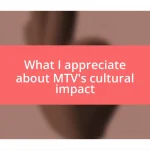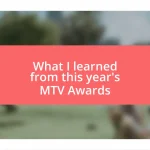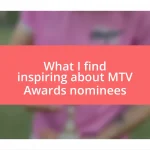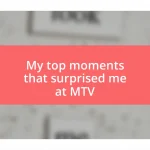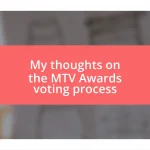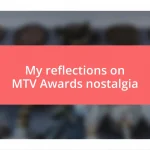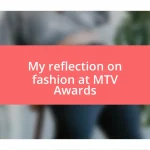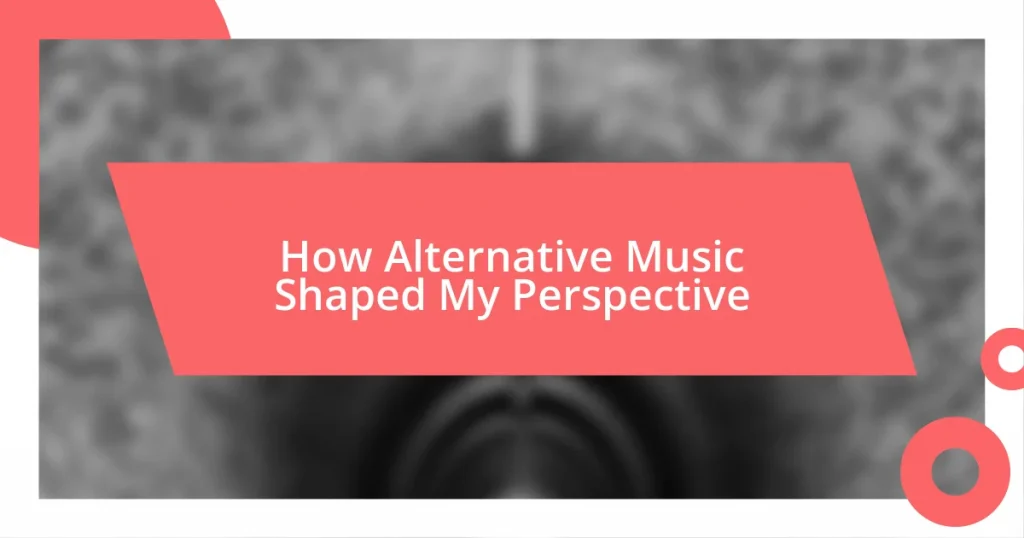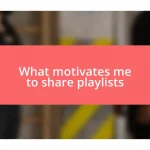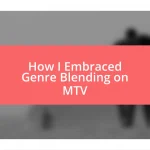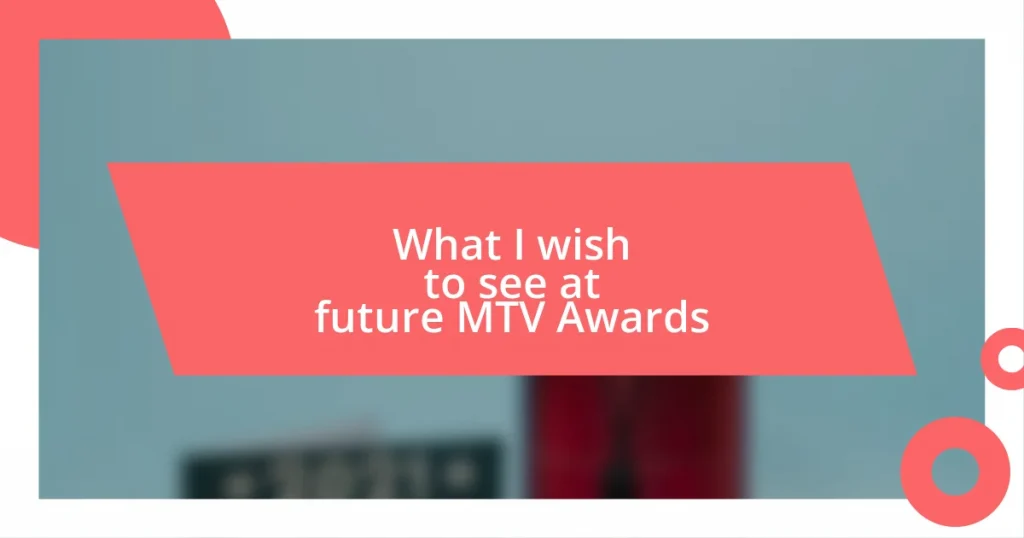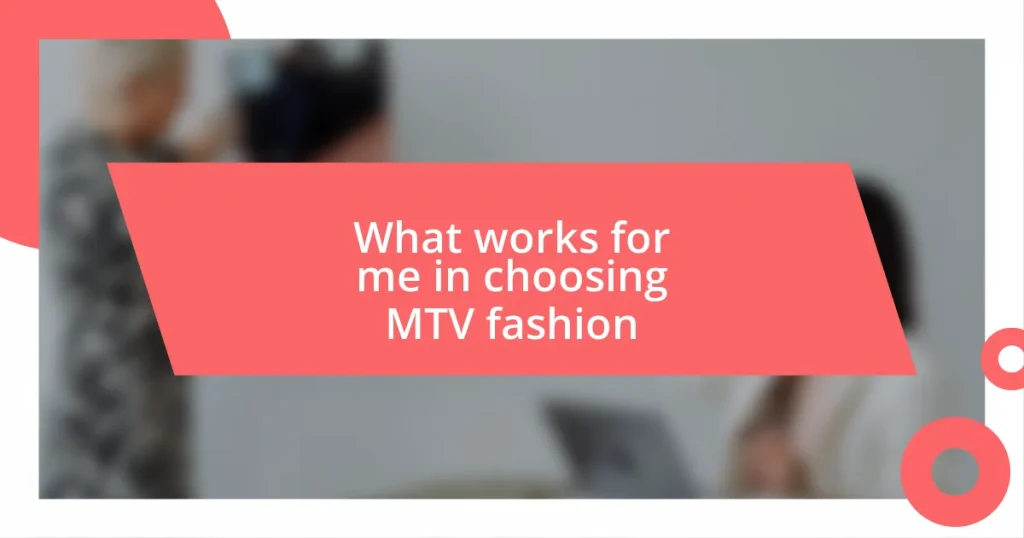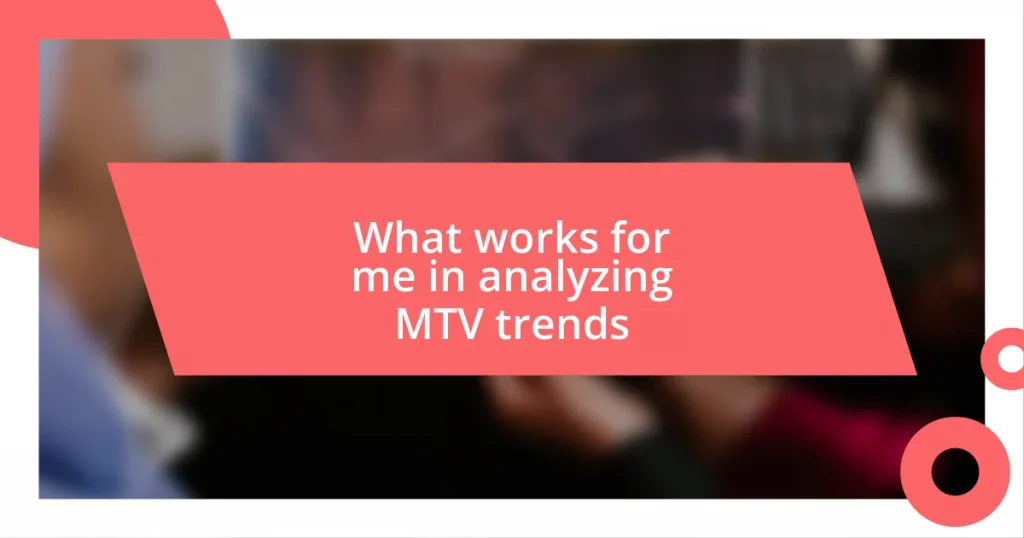Key takeaways:
- Alternative music creates profound emotional connections, enabling listeners to feel seen and understood through relatable themes like mental health and societal pressures.
- The genre fosters personal reflection and critical thinking, challenging societal norms and encouraging individuality through its diverse storytelling.
- Attending live shows and connecting with fellow fans highlights the sense of community within alternative music, offering a space for shared experiences and authenticity.

Understanding Alternative Music’s Influence
Alternative music has a unique way of reaching the listener’s core. I remember the first time I heard Radiohead’s “Creep.” It resonated with my own feelings of alienation and insecurity. Have you ever experienced a song that made you feel seen and understood? That’s the power of alternative music—it can transform personal struggles into a shared experience.
Songs in this genre often tackle themes that mainstream music tends to shy away from, such as mental health and societal pressure. For instance, the raw honesty of artists like Fiona Apple in “Shadowboxer” can leave an emotional imprint, encouraging introspection. I often find myself reflecting on my own life, wondering how to navigate those heavy emotions articulated so poignantly in her lyrics.
As I explored various alternative bands, I discovered how their storytelling helped shape my values and beliefs. Listening to music from artists like The Smiths and their melancholic yet poetic lyrics led me to question societal norms and expectations. I’ve often wondered: how does music challenge our perspectives? For me, it has been a catalyst for change, urging me to think critically about the world around me.
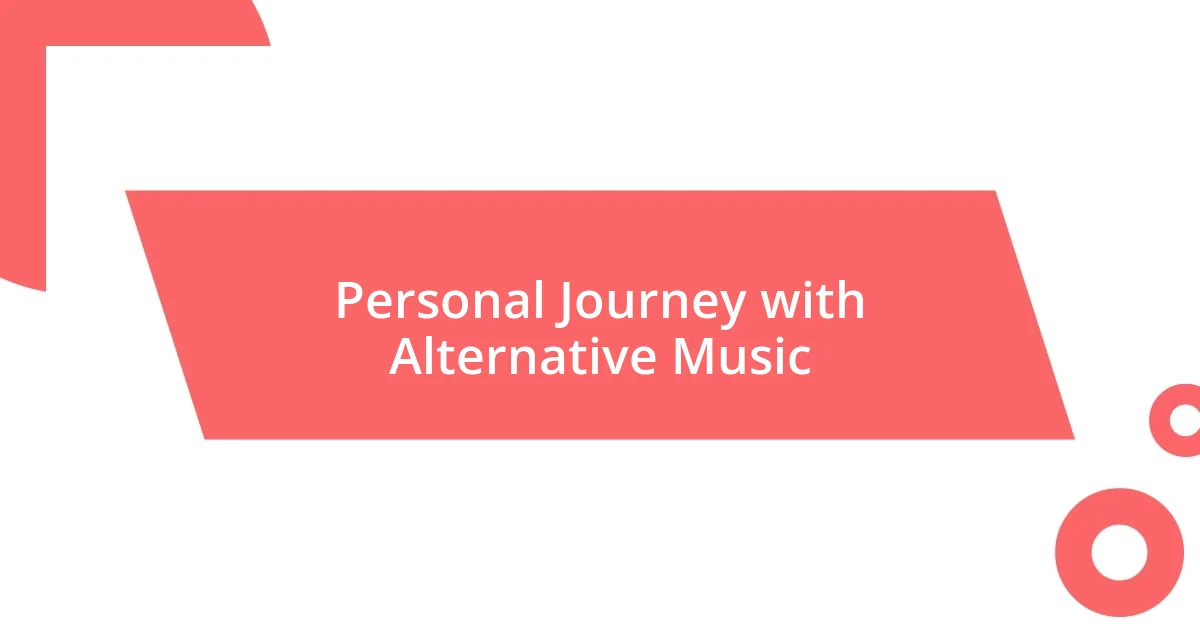
Personal Journey with Alternative Music
Discovering alternative music was like opening a door to a new world for me. I can still vividly recall the summer when I stumbled across The Smashing Pumpkins’ “Tonight, Tonight.” I was at a crossroads in my life, and that anthemic swell lifted my spirits in ways I hadn’t thought possible. Their intense blend of pessimism and hope gave me the courage to embrace my own struggles while seeking a brighter perspective.
- Each artist seemed to offer a piece of me that I didn’t know existed.
- I related deeply to the angst in Nirvana’s lyrics, which mirrored my teenage rebellion.
- Listening to Modest Mouse taught me that it’s okay to feel different; it can even be a strength.
- The gripping honesty of Death Cab for Cutie’s music helped me navigate heartbreak and loss with an understanding that I wasn’t alone.
- Ultimately, these experiences shaped debates in my mind about love, life, and what it means to truly belong.
Every album became a chapter in my personal narrative, guiding me through emotional landscapes that were often messy yet undeniably real.
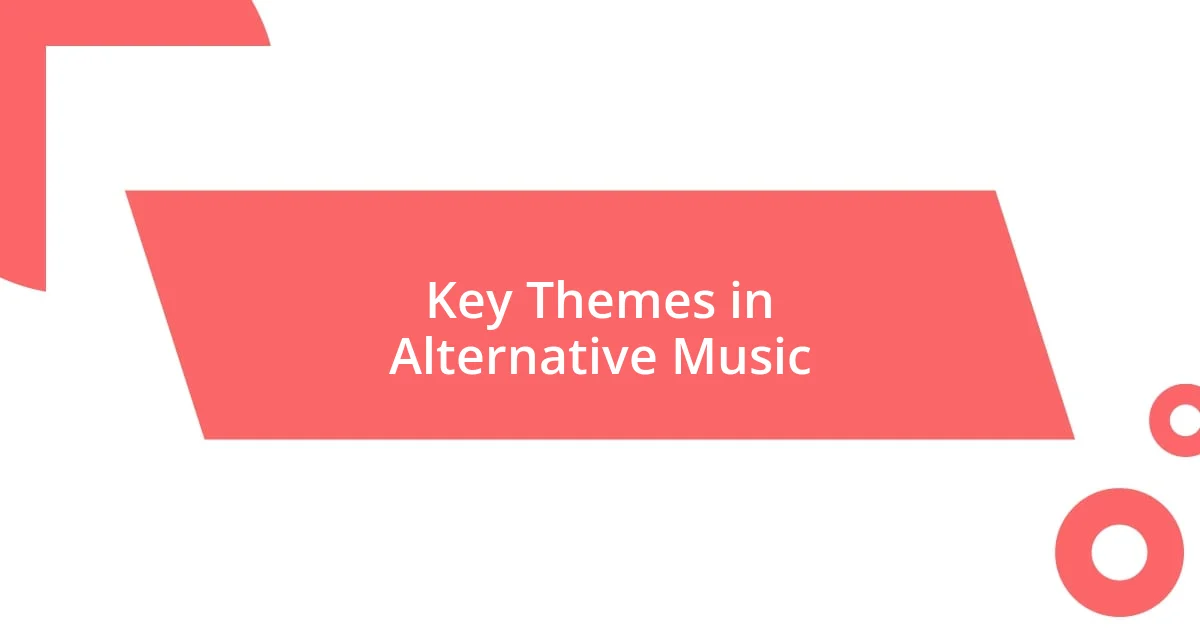
Key Themes in Alternative Music
Alternative music is rich with diverse themes that often defy mainstream expectations. For example, I remember listening to My Chemical Romance’s “I’m Not Okay (I Promise)” during a particularly rough patch in high school. The lyrics hit home, validating feelings of heartbreak and angst that I had never quite found the words for. Isn’t it fascinating how a particular song can bring clarity to our emotions in ways we didn’t know we needed?
Many songs reflect a deep sense of rebellion against societal norms. The raw energy in System of a Down’s “Chop Suey!” always made me question the realities around me. It’s almost liberating to think that music can be a form of both protest and empowerment, allowing us to voice our struggles and frustrations. Have you ever felt that rush of freedom when a lyric challenges your worldview?
The theme of identity is another critical aspect of alternative music. Bands like Paramore have lyrics that explore self-discovery and acceptance in a way that feels relatable. I recall belting out “The Only Exception,” and it made me reflect on my own fears regarding love and trust. That moment was enlightening—I saw how music can serve as a mirror, reflecting not just external struggles but also inner battles.
| Theme | Example Song |
|---|---|
| Emotional Resonance | Radiohead – “Creep” |
| Rebellion | My Chemical Romance – “I’m Not Okay (I Promise)” |
| Identity | Paramore – “The Only Exception” |
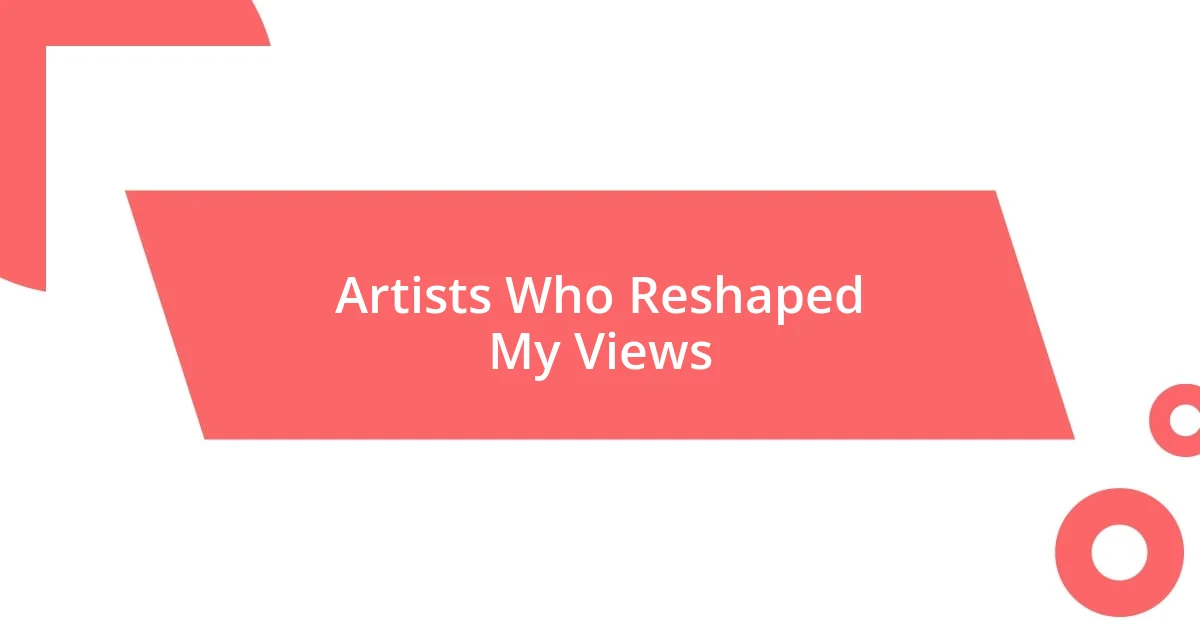
Artists Who Reshaped My Views
My encounter with Nirvana reshaped my perceptions in ways I didn’t expect. The moment I heard “Smells Like Teen Spirit,” it was as though Kurt Cobain was voicing everything I felt but couldn’t articulate. I remember fist-pumping in the car, feeling a sense of connection and validation, realizing I wasn’t alone in my teenage frustrations.
Then came Modest Mouse. Their song “Float On” was a revelation for me—an invitation to embrace life’s unpredictability. I had been struggling with feelings of isolation, and hearing Isaac Brock sing about resilience and the importance of moving forward lifted a weight off my shoulders. It strikes me how music has the power to transform our outlook; don’t you find it fascinating how one song can motivate us to change our mindset?
Death Cab for Cutie further deepened my reflections on relationships and loss. Each lyric in “Transatlanticism” felt like a shared experience of yearning and distance. I can still recall lying on my bed, letting the haunting melodies wash over me, realizing that it’s okay to feel vulnerable. That moment sparked a conversation within me about the complexity of love and connection, an introspection that truly helped me appreciate life’s bittersweet moments.
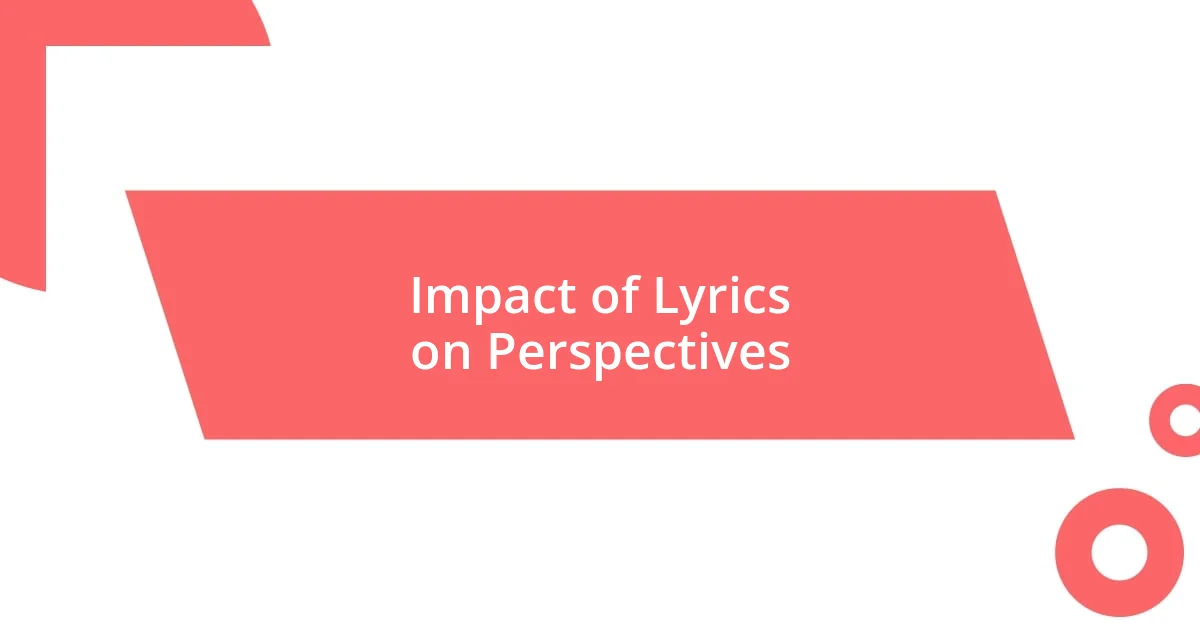
Impact of Lyrics on Perspectives
The impact of lyrics on my perspective has been profound. I distinctly remember listening to “The Night We Met” by Lord Huron during a late-night drive, feeling an overwhelming sense of nostalgia wash over me. Those poignant lines about longing and the passage of time made me reflect on my own experiences with love and loss. Has a song ever transported you back to a moment in your life, making you relive those emotions?
Then there’s the raw honesty found in the lyrics of “Fast Car” by Tracy Chapman. Its narrative of escape and the quest for a better life struck a chord with me, causing me to reconsider my aspirations and what freedom truly means. It’s incredible how music can challenge us to evaluate our choices and desires—don’t you feel it encourages self-reflection?
There are times when I find myself lost in the haunting phrases of Radiohead’s “No Surprises.” The song’s exploration of mundanity and disillusionment feels like an anthem for anyone wrestling with societal pressures. Listening to it helped me recognize that it’s okay to feel disenchanted at times. Those lyrics nudged me toward acknowledging my own struggles, ultimately fostering a deeper understanding of what fulfillment means in today’s world. Wouldn’t you agree that confronting these feelings through music can be a powerful catalyst for personal growth?
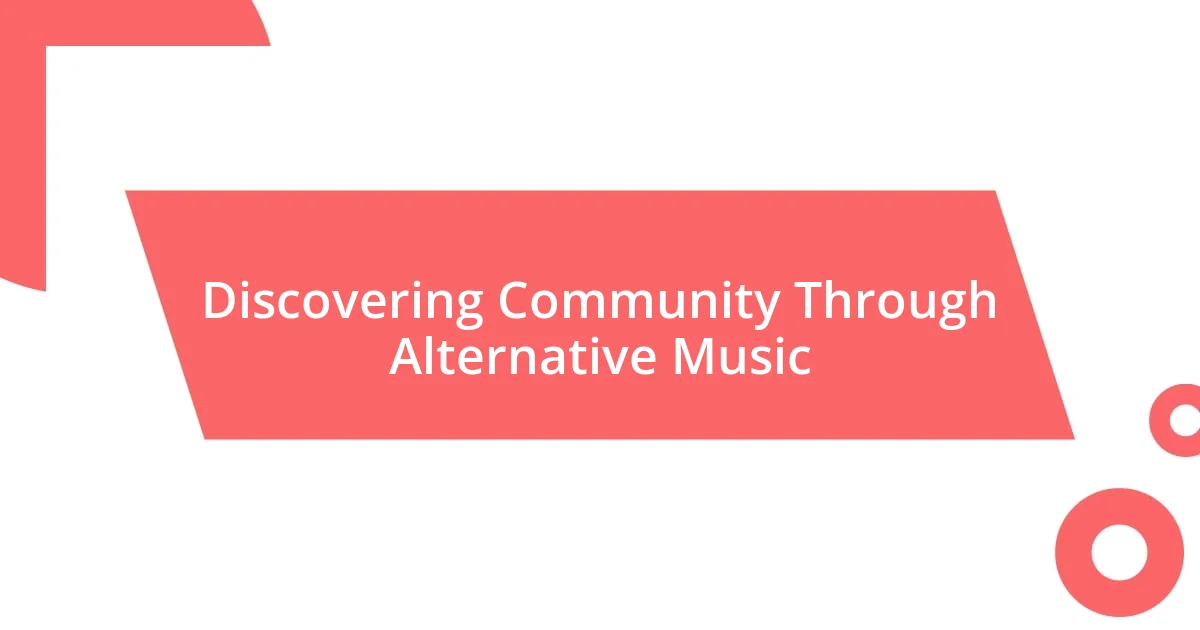
Discovering Community Through Alternative Music
Finding community through alternative music was one of the most powerful experiences for me. I remember attending a local show, completely unsure of what to expect. As the band played, I looked around at the crowd—everyone sang along, lost in the same lyrics, feeling the same energy. In that moment, I was filled with an overwhelming sense of belonging that I had never experienced before. How could something as simple as music create such a profound sense of unity?
I think back to the times when specific concerts became gathering places for like-minded souls. One night, at a small venue, I noticed a group of fans forming an impromptu circle to share their thoughts on the music. Their discussions were raw and honest, revealing struggles, hopes, and dreams. I found myself drawn in, feeling connected through shared stories and experiences. It sparked something within me; I realized that alternative music transcends mere entertainment—it’s a conduit for powerful conversations and connections. Isn’t it amazing how a band can bring together a group of strangers who feel like friends?
Looking back, I’ve often wondered why this community feels so vital. For me, it wasn’t just about the music; it was about finding a safe space where I could express my true self. The diversity in the crowd and the openness in sharing our struggles created a tapestry of experiences that celebrated individuality. Isn’t that what we all desire? To know that we’re never truly alone? Through alternative music, I discovered not just a genre, but a family—a network of individuals bound by the shared understanding that we are all navigating this chaotic world together.



